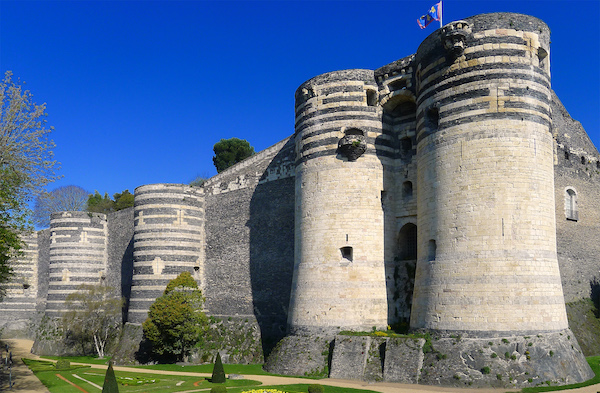Wikipedia launches a photo contest to promote heritage
Since the beginning of September and until the end of the month is held the 9th French edition of the photographic contest Wiki Loves Monumentsorganized by the online encyclopedia Wikipedia.Many of the pages on Wikipedia do not have photographs or have poor illustrations. In order to highlight heritage, the Wikimedia Foundation invites the public to submit pictures of buildings that are not yet illustrated in the pages of the Wikipedia encyclopedia.
The Wiki Loves Monuments program is the result of an initiative born in 2010 in the Netherlands. The 2019 edition of Wiki Loves Monuments runs from September 1 to 30 in more than 35 countries.
This photo contest, open to everyone, has several objectives: to illustrate articles that contain only text, to provide worthy shots for subjects who have low-quality photos, to build up a varied stock (from different angles and lighting, for example), and to be a recent addition to the historical monuments.
Wikimedia France has been involved in the organization of this worldwide competition since 2011, in order to encourage the valorization of historical monuments.
During the 2019 edition, a dedicated page is available for the French part of the event. The photos will feed Wikimedia Commons, the platform that acts as a media library for the encyclopedia.
In 2018, the contest drew more than 14,000 participants who shared more than 258,000 photos: 55,000 of them were included on Wikipedia.
POP, the open heritage platform
On July 9, the Ministry of Culture put online the beta version of the POP platform, an acronym for "Open heritage platform.Produced with the help of beta.gouv.fr, the network of government startup incubators, POP's ambition is "to make French cultural heritage data accessible to as many people as possible".
In less than 12 months the state-owned startup POP has built the Ministry of Culture's new heritage data consultation platform, listing over 3.2 million works. As of June 2019, more than 180 agents from the Ministry, local authorities and French museums are currently feeding the Open Heritage Platform to serve the 25,000 monthly users from the general public and the professional and scientific community.
This platform completely renews the database system of the Ministry of Culture, which dates back to the 1970s and was hardly attractive beyond the circle of specialists.
Conceived as "a new tool for sharing and exchanging information," POP already brings together several historical databases from the Ministry of Culture: the Palissy and Mérimée databases (movable or monumental heritage protected as historical monuments or studied by regional inventory services), the Joconde database (collections of the Museums of France), the MNR-Rose Valland database (catalog of looted works), and the Mémoire database (photographic images). Other databases are expected to join POP in the coming months.
The platform, still in beta version but already largely functional, offers the Internet user several types of searches: free search (by entering a word or a phrase), thematic access, by location, by period, by technique.
Références :





